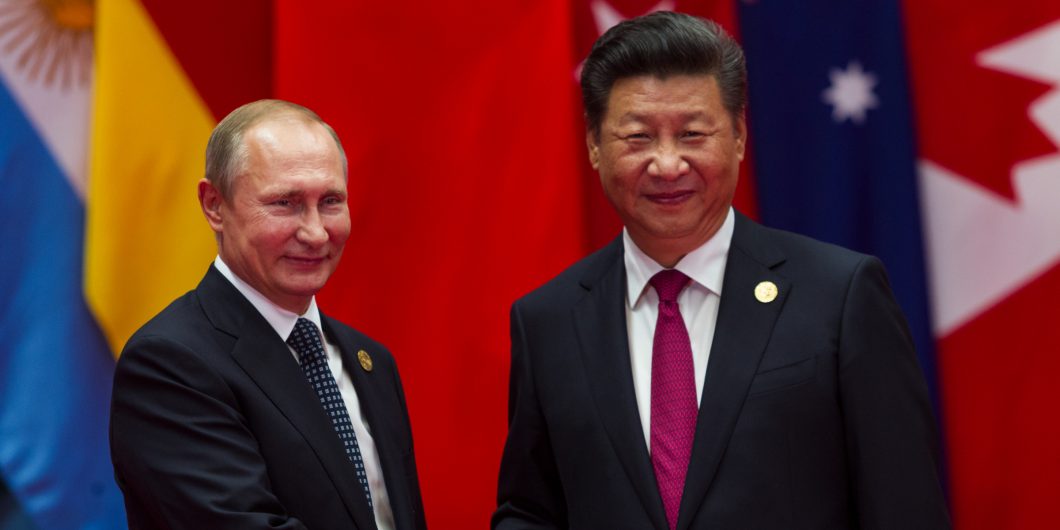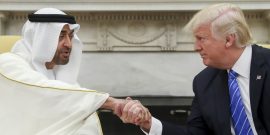The fact that America no longer needs to play policeman in the Persian Gulf compels the Gulf states to act responsibly as a matter of self-preservation.
Civilizations or Identities?
Why can’t we all just get along? It’s a seemingly simple question often said with humor and irony precisely because human beings tend to err on the side of the conflict rather than a peaceful resolution. Samuel P. Huntington’s The Clash of Civilizations and the Remaking of World Order (1996) still remains relevant in terms of transnational dialogue. But was Huntington correct in his analysis? According to Samuel Gregg’s essay on the subject, Huntington’s analysis and arguments still very much hold, despite the inevitable motion of time and changes in current political events. As Gregg notes, Huntington’s argument rightly “continues to elicit sharply polarized reactions,” and as much as I agree with most of what Huntington points out, there are some weaker elements in his argument.
An Islamic Civilization?
Gregg covers Huntington’s discussion about many different civilizations—but he focuses attention on the Chinese, Western, and Muslim civilizations. Gregg asks significant questions openly: “Could it be that not all cultures were equally compatible with values like liberty or institutional settings like constitutionalism? And if that was the case, what did it mean for, say, the capacity of particular minorities like Muslims living in Western countries to adapt to norms that Westerners take for granted?” Gregg is completely correct to point out that some cultures are simply incompatible with, for example, American principles of freedom and liberty. These certainly include some Muslim cultures, but it should be noted that a distinction is needed in this case. Being a Muslim is not a monolithic experience. Even within various strands of Islam, there are groups that are more orthodox than others. This is true of almost every religion and Islam is no exception.
According to the Western mindset, Islamic countries represent one of the major civilizational threats to the West. This is not entirely untrue. Many Muslim nations have rigid theocratic laws that treat women as barely second-class citizens. (Writers like Ayaan Hirsi Ali and Asra Nomani have been very much outspoken about these very important issues).
There are also many radicalized terrorist groups that have turned and used Islam as a powerful ideology, carrying out terrorist attacks and executing people in the name of religion. Some, like Robert Spencer, would argue that this is Islam. But this is most certainly lacking a more nuanced understanding of not only Islam but the cultures that exist within the religion. In many ways, the expression of Islam depends on the expression of the culture and even the language that it is part of.
Gregg correctly points out Huntington’s analysis of what would come after the collapse of Communism, especially in the former Yugoslavia. As Gregg writes, “. . . Huntington’s book was one of the first to recognize . . . the reemergence of identity as a central pivot of international relations.” But what is identity to begin with in a country that used to be called Yugoslavia? Desperately wanting to separate himself from Stalin, Tito created his own brand of Communism that, on face value, united all Southern Slavs. Like any dictator, he had a benevolent public image, and while most people in Yugoslavia did live in relative harmony, there were also many in Communist prisons who dared to question Tito. The idea that everyone was equal is foolish and as it is with any ideology, a hierarchy quickly emerged in which those who did not belong to the Communist Party were quickly dismissed. Having grown up in Yugoslavia (Bosnia), my own family has certainly felt some aspects of this since both of my parents repeatedly refused to join the Party. Yet in some strange and perverse way, Communist ideology held the separate ethnic and religious identities together. However, any such union based on atheistic ideology is bound to fail because it’s not based on reality. The emergence of a different identity was inevitable, especially in the case of Yugoslavia, and more than anything, Bosnia-Herzegovina.
For many Western nations, who rightly criticize certain factions of Islam, mass murder of Bosnian Muslims is an uncomfortable truth, because it calls into question the very way we categorize civilizations and cultures.
Bosnia has always been at the crossroads, literally, of different cultures. Even before Tito’s brand of Communism emerged, Sarajevo was composed of Muslim, Christian Orthodox, Catholic, and Sephardic Ladino cultures. This is not to say that life was without its tensions. It would be foolish to assume that everyone lived in perfect harmony, which is in any case, not humanly possible. However, this sense of great difference among people, culturally and religiously, made a difference in relations. Whether we like it or not, cultures influence each other, and not every difference is entirely black and white. This is why the example of Bosnia’s essence complicates the Western understanding of Islam as it stands today. There is no civilizational clash, as defined by Huntington and as Gregg sees, because the essence of the country or region itself lies with the differences between identities. To see Muslims in Bosnia in the same way as Muslims who wholly identify with theocracy is a political and philosophical mistake.
As much as Huntington has a great understanding of the world’s reaction to the war in Bosnia in the 1990s, he makes a fundamental error in one thing: he evades the reality that mass murder of Bosnian Muslims was genocide by believing the Serb ultra-nationalist propaganda. The fact that this was a genocide was not an easy thing to accept for the Western world during the war and even today. Muslim civilization has always been in conflict with Western values and traditions, and there is no denying that. But this attitude, which has many merits, was used as a way to ignore what was happening to Bosnian Muslims. The issue here is that reality conflicts with political theory. If, as Huntington claims, Orthodox Serbs felt marginalized and wanted to stop the creation of a so-called Islamic State, then how can one explain away a genocide? What political entity declares independence and sovereignty and then proceeds to kill civilians? How can one categorize this as a purely political problem of clashing cultures, when one culture engaged in a mass murder? How can one explain the persistence of mortar shells and snipers that annihilated innocent lives? For many Western nations, who rightly criticize certain factions of Islam, mass murder of Bosnian Muslims is an uncomfortable truth, because it calls into question the very way we categorize civilizations and cultures.
Civilization or Identity?
Gregg is correct to point out that “secular Muslim Bosnians found themselves identifying with the struggles of other Muslims in far-away lands, and subsequently rallying to various jihadist groups inside and outside Europe.” There are several levels of questioning and exploration here. First, when the war began in 1992, Bosnian Muslims found themselves to be targets of ethnic cleansing, meaning genocide. Suddenly, even people who were not necessarily overly religious but were born Muslim were picked out for extermination. If they survived the war, these same people found themselves wondering about the very basic human question: who am I? What does this identity mean to me? This means that such questions will inevitably have an impact on future generations as well. People are more likely to seek their roots when they were sought out to be destroyed precisely because of those roots.
Secondly, (and this is a large issue currently in Bosnia), ever since the end of the war, there have been more extreme and radical Muslim groups (like the proponents of Wahhabism) that have attempted to insert themselves into a distinctly European culture. Bosnian Muslims then find themselves in conflict with a culture that clearly does not prize inherent human dignity.
In this sense, Huntington is correct that we are experiencing a clash. But is it really between civilizations or between different types of identity, as Gregg suggests in his essay? Is a civilization at this point a meaningless category? What we are experiencing today is an astounding level of fragmentation, particularly among the Western nations. Old national identities have almost disappeared and if there is any attempt at revitalizing them, there are cries and charges of racism from the atheistic, leftist camp that wallows in self-loathing and masochistically wishes to be annihilated. Such people are proponents of oikophobia, as Roger Scruton rightly pointed out.
Given the political turning point at which we find ourselves, namely that of globalism’s challenge to national sovereignty, we have to start to move away from the idea of a civilization, except when we speak of it in historical terms. I do not mean to suggest that we deny that civilizations exist or that we shouldn’t defend one civilization or the other. Rather, I mean that we have to face the reality that our world is incredibly fragmented and the cohesion that each country, let alone civilization, had in the past is now practically non-existent. The emergence of identity politics and ideology’s assault on the human person has made this problem even more difficult and seemingly unsolvable. Globalist ideology seeks to destroy all the differences among people, while mostly mounting an attack on Western values. It is globalism that is causing further fragmentation and possible collapse of different identities. This is an additional aspect of the crisis of identity that the world is currently facing.
People often talk about how they get along really well with their neighbors that may be from a different country or religion. Cultures that seem incompatible somehow find their way in communicating with one another once the people are seen as individuals and not merely as members of a group. Once they are face to face, in an authentic encounter, these rational individuals are able to transcend any cultural tensions and come together in a way that may be surprising even for them. This kind of encounter happens often, and many times it goes unrecognized because it doesn’t feed on a disaster and hate theory. Would people choose to have a dialogue with a fellow human being? Or would they rather continue to seek things that affirm falsehoods and narratives that appear to be most comfortable and least challenging? This lack of openness can be applied to any culture because, psychologically speaking, people are more comfortable with heuristics, especially when it comes to the acceptance of various ideologies. A conflict between human beings is strangely natural to man, and so we cannot expect that an ideal society will emerge.
But, we still must ask, what happens when identity is only defined according to a group? This makes it far easier to engage in conflict, precisely because the person has ceased to be an individual. Rather, he or she is a mere category (civilization or identity) and this starting point is far more likely to yield conflict than resolution. Yet we cannot be naïve. There are ideological factions that are all too happy to destroy the “Western enemy.” Therefore a defense is necessary. The challenge lies in our attempt to separate the individual human person from the rigid category. And even then, the tension may remain. The hope is that it does not turn into hatred. In order to illuminate this problem, we must start to view identity as a mode of being, as opposed to a mode of politics. In this case, I believe that a focus on the metaphysics of identity might provide a better intellectual entrance into a clearly political problem.


